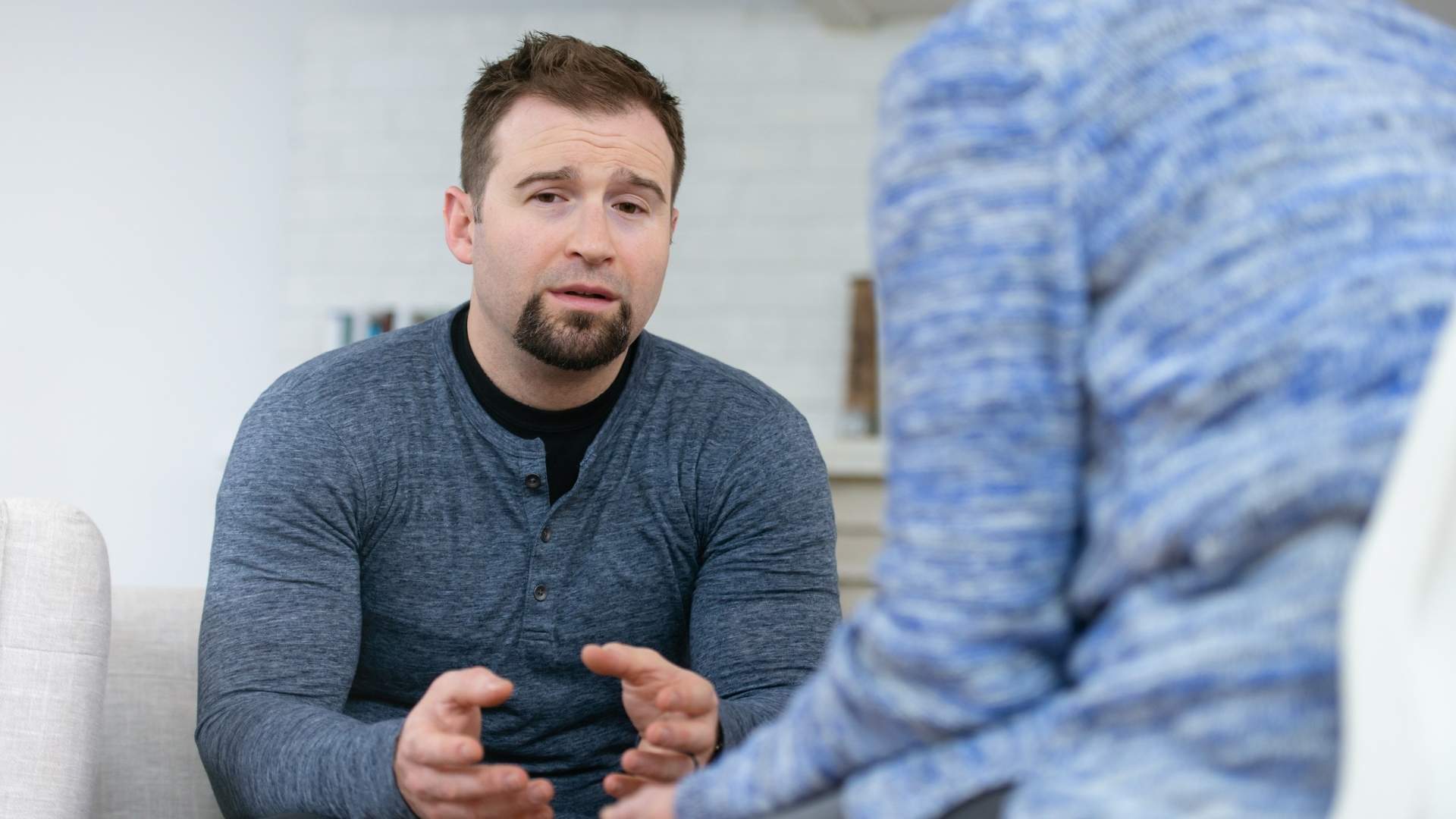Recovering from drug abuse and alcohol addiction can be taxing. The psychological, physical, and emotional toll it takes on a person requires determination, strength of will, and a loving and stable support system.
Tackling withdrawal and detox alone is possible. However, the chances of relapsing or suffering withdrawal-related medical issues are high, especially within the beginning stages after treatment. Recovery is best undertaken under the supervision of a trained, empathetic, and experienced medical professional. They have years of skills to call upon to help you along your road to sobriety or abstinence, no matter where you are coming from or how dire your situation may seem.
This article will provide insights into the prevalent objectives of individual therapy and how a therapist can assist you in establishing and achieving personal goals. Additionally, we will discuss strategies for reaching these goals, enabling you to awaken and harmonize various aspects of your being, ultimately fostering a sense of wholeness.
Santa Barbara Recovery’s men’s rehab center in Southern California provides clients with a team of trained addiction specialists and mental health professionals who specialize in individual therapy and other forms of substance abuse treatments to promote optimal recovery outcomes.

What is Addiction Therapy?
Therapy for substance abuse is a key aspect of rehabilitation. Therapy for substance abuse provides rehab centers and patients with various options that can be fine-tuned to suit each patient’s specific needs. Addiction therapy is a science-backed and evidence-based treatment practice that helps patients identify and challenge negative feelings, thoughts, and behaviors that lead to taking drugs and abusing alcohol.
Patients will progress to learn coping and management skills, level up their communication, and heal their relationships with family, friends, and other loved ones. This will enable them to kick the habit of using drugs and alcohol as coping mechanisms and lead them on to living sober and fulfilling lives.
How Does Addiction Counseling Work?
There are many different therapy methods, and each with its own approaches and goals. Certain therapy forms are better at handling certain issues. During the assessment and treatment process, a good therapist can combine several different approaches and disciplines of therapy to custom-tailor a treatment and rehabilitation plan that perfectly suits your goals and preferences.
Addiction therapy is commonly viewed as a method in which individuals pursue healing through conversations with a professionally trained, state-licensed therapist. In various forms of individual therapy, the sessions are intended to provide a space for people to openly discuss any topic they wish to address, as well as to work on healing, personal growth, or self-improvement.

What is Individual Therapy for Addiction?
Individual therapy (also known as psychotherapy, psychosocial therapy, or talk therapy) is a collaborative technique between a person in recovery and their therapist. Therapy provides a safe space for dialogue and educating a person about their addiction, relapse, triggers, symptoms, and recovery process.
Psychotherapy sessions also teach people how to cope with and manage their addictions and cravings, how to build a healthy support system around themselves, and help establish goals that align with their journey towards abstinence and sobriety. Discovering the root underlying causes of an addiction allows the healing and recovery process to begin on firm ground.
Initially, regardless of the therapist or counselor chosen, it is important to anticipate feeling acknowledged, understood and supported for the issues discussed. In essence, therapy typically commences with the exploration and clarification of the following concepts:
1. Your therapist may be interested in understanding your perspective on the concept of being seen.
2. Your therapist may inquire about your thoughts and feelings regarding the experience of being seen by others.
3. Your therapist may seek to explore the aspects of yourself that you wish to be acknowledged and recognized by others.
4. Your therapist may also want to delve into the parts of yourself that you may feel compelled to conceal from others.
Your therapist may be curious about how you react or behave when you are uncomfortable with being seen by others.
How Effective is Individual Therapy?
Therapy is most effective and transformative for individuals seeking healing, change, growth, and evolution. The more interested you are in these concepts, the greater the likelihood of finding therapy effective. The effectiveness of therapy is influenced by the goals you establish. Clear, specific, and actionable goals make it easier to measure progress. Regularly reviewing these goals during therapy is crucial for ensuring its efficacy.
Choosing a therapist with whom you can build a meaningful therapeutic relationship is essential. This enables you to set realistic and achievable goals. Often, when therapy is perceived as ineffective, it may be due to unrealistic expectations or a mismatch between the therapist and the client. By engaging with a trusted therapist and actively participating in the therapy process, individual therapy can effectively help you overcome obstacles and achieve harmony.
Each individual possesses unique characteristics, necessitating a personalized approach to goal setting and achievement. For instance, one individual pursuing a particular objective may adopt a different strategy than another individual striving for the same outcome. Additionally, two individuals at different levels may employ identical methods to reach distinct goals.
From the initiation to the conclusion of individual therapy, one goal remains paramount: the establishment of a robust therapeutic alliance. Ongoing research consistently indicates that the client-therapist relationship is a critical determinant of successful therapeutic outcomes. Consequently, considerable attention is devoted to nurturing the effectiveness of this relationship throughout the entire therapeutic process.
Goals and Principles of Individual Psychotherapy
As therapy progresses and the bond between you and your therapist deepens, you may start to encounter thoughtful and purposeful challenges. A primary objective of therapy is to enable you to explore alternative perspectives on your thoughts and emotions. The aspiration is that this broadened understanding will facilitate enhanced cognitive processes, improved emotional regulation, and lasting behavioral transformation.
Although the challenges presented in therapy may sometimes be difficult, your therapist should be equipped to assist you in recognizing, selecting, and managing these demands. The overarching aim, when feasible, is for you to continue your healing journey independently—when you feel prepared. In essence, the goal is for you to apply the insights and skills you have acquired during individual therapy in your own life.
Goal-Setting in Individual Therapy
The primary objective of individual psychotherapy is to assist clients in enhancing their emotional and social well-being, ultimately leading to a more fulfilling and productive life. Each person’s life, experiences, relationships, and mental health should be viewed with a nuanced perspective.
The complexities of each individual’s life, experiences, relationships, and mental health must be recognized as intricate. This intricacy implies that psychological concepts, principles, and theories can serve as valuable tools when applied appropriately to the distinctiveness of each person. In other words, therapy is not a one-size-fits-all approach, and goals should be customized to suit the individual.
To achieve genuine self-discovery and enhance your emotional self-awareness, it is essential to establish personalized therapy goals in collaboration with your therapist that facilitate a deeper understanding of yourself. This process will aid in fostering authentic self-acceptance and self-love, which are vital prerequisites for healing, growth, and transformation. These goals are often most effectively reached when they are created in partnership with your therapist.
It is important to acknowledge that the choice to embark on therapy itself represents a significant initial achievement. Typically, individuals seek individual therapy to investigate the reasons behind certain thought patterns or to address specific dysfunctional coping mechanisms.
Therapy also provides a valuable avenue for those who feel overwhelmed by persistent patterns and cycles, whether they pertain to thoughts, emotions, or behaviors. While there exists a broad spectrum of potential goals to pursue, some common objectives for individual therapy include:
1. Empowering oneself: Acquiring the ability to initiate change, address disagreements, and enhance interpersonal connections.
2. Self-development: Enhancing self-awareness and exploring aspects of identity, self-worth, and self-nurturing.
3.Overcoming obstacles: Recognizing the underlying reasons behind persistent obstacles, and acquiring skills to handle pressure and strain.
4. Adapting to life transitions: Acquiring strategies to cope with transitions such as loss, career changes, parenthood, and grief.
Principles of Individual Therapy
The primary objective of individual therapy is to assist you in cultivating a deeper, more thorough, and practical comprehension of yourself. Attaining this objective can provide you with a heightened sense of authority over your life, encompassing your thoughts, emotions, actions, and connections.
- You effectively initiate or conclude significant relationships in your life – in manners that bring you pride and enthusiasm.
- You gain confidence in your capacity to encounter, acknowledge, and merge various truths simultaneously.
- You experience an increased level of self-esteem, a more positive self-image, and genuine self-compassion.
- Establishing a connection: Developing trust and a bond with the client by delving into their concerns.
- Maintaining confidentiality: Ensuring the client feels secure when sharing their thoughts and emotions.
- Aligning goals: The therapist must comprehend the client’s needs and objectives for therapy.
- Therapeutic agreement: A written document detailing the roles of both the therapist and the client.
The objectives of individual therapy are tailored to your specific requirements, and it is essential to collaborate with a skilled and trained professional, who can guide you in achieving them. Although there are various approaches to psychotherapy and counseling, all practitioners should prioritize empowering you with the mental tools necessary to eventually master the ability to self-heal independently.
Other Addiction Therapy Services Used During Treatment
Addiction therapy services that are commonly used in addition to individual counseling sessions include:
- Cognitive behavioral therapy (CBT): CBT works by identifying, challenging, and negating unhealthy thought patterns and beliefs about oneself. It teaches people how to think differently, how to improve their behavior, and how to approach problems from different angles.
- Dialectical behavior therapy (DBT): Dialectical behavior therapy focuses on teaching a patient how to improve their emotional regulation skills and on building their motivation to help them manage and cope with life’s challenges better.
- Group therapy: Those who may initially hesitate to discuss their addiction-related difficulties will come to understand that they are not isolated in their experiences. Engaging in group therapy allows participants to acquire important insights from fellow members, who provide varied viewpoints shaped by their life journeys.
- Family therapy: Addiction is often called a family disease because of how it affects an addict’s immediate family and close friends. Family counseling sessions can help recovering addicts better understand behavioral patterns in their relationships. Family members may also be gathered together to aid the communication and healing process and build a loving support system around the patient.
- Holistic therapy: Holistic treatments include alternative modalities that take mind-and-body-encompassing approaches such as meditation, yoga, hypnotherapy, massage, acupuncture, animal therapy, art or music-based therapy. Holistic treatments combined with traditional medicine can help even out side effects related to medication taken for addiction recovery. Meditation, yoga, and other holistic approaches can help a patient better cope with and manage their anxiety, depression, and post-detox cravings.

Benefits of Individual Therapy
Examining the extensive scope of individual therapy for addiction recovery can help you determine whether or not it will suit your needs and goals. This form of psychosocial therapy involves delving deeply into your psychological and other emotional health troubles and laying them bare.
It may be an enormous challenge at first as you acclimate to the therapeutic process again, but allowing yourself to participate in the treatment process instead of pushing back and resisting it can help you make real progress toward your abstinence and sobriety goals. The many benefits of individual therapy include:
1. Better Understanding of Yourself
One of individual therapy’s biggest benefits is how it helps find a better sense of self. In individual counseling sessions, one will:
- Gain a better knowledge of your triggers
- Learn how to cope with and manage your addiction cravings
- Identify and challenge the root issues that may have contributed to your addiction
You will sit down with a therapist who properly understands the complexities of your addiction and how it impacts your health and well-being. They will help equip you with the fortitude to walk away from the allure of drugs and addiction forever. The rapport you build with your therapist will enable you to confront your issues in a supportive and healthy manner. You will set goals and design a plan of attack to take down each issue.
2. Enhance Mindfulness
Many therapists focus on mindfulness during the addiction treatment process. This process teaches you the concept of living in the moment, accepting yourself for who you are, and seeing and accepting your life for what it is. You will learn to recognize and keep note of your triggers as they happen and understand why they happen. Then you can employ the mindfulness process to calm yourself down and avoid turning to different substances to help you cope with anxiety and stresses in your life.
3. Finding Your Triggers
Why do you abuse drugs? Do you know? Do you know what started it? Many people do not understand their triggers on a deeper level and why they cause them to turn to misuse drugs and other substances. Individual therapy is a critical tool used to uncover and understand these factors. This is the most beneficial aspect of individual therapy. Understanding why you use drugs will empower you to master coping mechanisms and stop use completely, which will help you maintain sobriety and abstinence longer and become a more stable person.
4. Enhancing Communication Skills
Working on a personal basis with a therapist in individual therapy helps patients learn how to act and talk to others again after a lengthy addiction period. Prolonged addictions can make people lose social graces and interpersonal skills which renders them unable to interact and connect with those around them.
What to Expect in a Psychotherapy Session?
Assessment is always the first step in addiction recovery treatment. The first session focuses on gathering information and establishing boundaries for how you will interact with your therapist from then on. Your therapist will discuss your history of emotional, physical, and mental health. It may take a few sessions for your therapist to build a complete image of the situation, and only then can they begin to customize a treatment plan that is specific to your needs.
The prospective patient should use the first therapy session to determine if the counselor’s style is a good fit for their needs and their goals. Your recovery journey will be much easier and successful if you find a therapist you are comfortable working with. Make sure you ask for detailed answers about the session lengths, treatment goals, the types of therapy to be used, and how many sessions will be needed for you.
Many therapists encourage and prefer their patients to do most of the talking. Talking about past trauma, feelings, experiences, and present concerns in sessions can stir up deep emotions. You may find yourself becoming angry, sad, or otherwise upset during your treatment, but your therapist can help you become more comfortable and build confidence as your sessions progress.
Therapists may assign homework based on the topics and issues you discuss in your sessions. You are free to ask questions at any point during your treatment and care. This process can help you develop healthier thinking patterns and have a more positive mood as time progresses.

How Long Do Talk Therapy Sessions Last?
Individual therapy is commonly viewed as a method in which individuals pursue healing by engaging in conversations with a professionally trained and licensed therapist. During individual therapy sessions, individuals are encouraged to freely discuss any topics they wish to address, whether it be related to personal growth, healing, or change in their lives. An individual therapy session typically lasts from 45 minutes to an hour. The exact time depends on each individual’s needs as well as other factors, including:
- The mental health issue being addressed and how severe it is
- How long the patient in therapy has suffered from the issue
- How much the mental health issue affects the patient’s day-to-day life
- How much distress the mental health issue causes
- The rate at which the patient in therapy shows improvement
- Financial limitations
Some problems can be addressed and resolved through short-term therapy over a few weeks. However, chronic or more complex issues will most likely require long-term treatment. At times, more than a year can pass before noticeable progress is recorded.
Is Individual Therapy Covered by Insurance?
Therapy visits, group therapy, mental healthcare, individual therapy, and addiction rehabilitation are normally covered under health insurance plans. Even with insurance benefits kicking in, therapy can be expensive. Make sure you speak with your insurance agent as well as the admissions team at our treatment center to verify your insurance and come up with a sustainable financial plan for your care.
Seek Individual Therapy at Santa Barbara Recovery in CA
Living with a substance use disorder (SUD) can be both mentally and physically exhausting. But it doesn’t have to remain that way. There is a way out. Santa Barbara Recovery, located in Santa Barbara, California, has the expert staff and facility to cater to every aspect of your recovery journey. Our therapists will work with you to find out your specific needs and requirements and compose a bespoke treatment plan just for you.
No two addictions are alike, so no two recovery plans should be alike. If you or a loved one requires recovery care, contact us today to get the ball rolling. You have the right to live a healthy and meaningful life.
Engaging in individual therapy can lead to a significant shift in how you see yourself, those around you, and the world. This transformation frequently results in an enhanced quality of life and better overall health.
Follow Santa Barbara Recovery’s guide to individual therapy, and learn how the types of addiction counseling we offer can help you or a loved one reach a path of long-term sobriety. Individual Therapy today! By exploring our individual therapy services in Santa Barbara, you can gain valuable insights into the underlying issues contributing to addiction.













